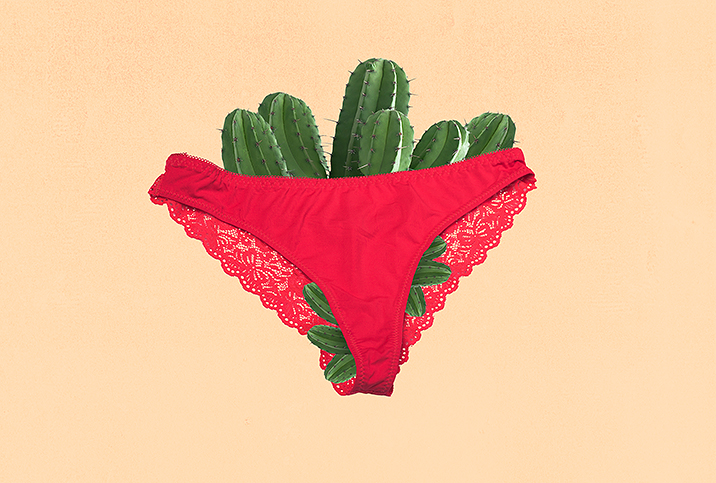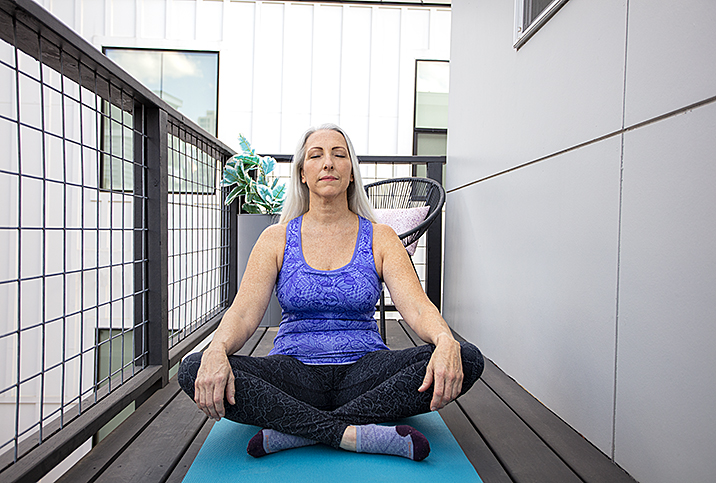4 Health Risks to Watch for After Menopause

There is much ado about menopause, but it is merely the moment in time when you have not had a period in a year. Before that, you are in perimenopause; after you are post-menopausal, and it is the changes we experience during these times that we need to pay attention to.
The hormones that keep our cycle regular also play other roles in keeping us well. Estrogen especially appears to play a leading role in wellness, influencing brain, liver, heart and skin health, while helping to regulate our metabolic processes.
As we drift into perimenopause, the level of the hormones that affect reproduction rise and fall like a rollercoaster. Once you hit menopause, those levels bottom out for good, increasing your risk of developing certain conditions.
1. Heart disease and stroke
According to the American Heart Association, about one in three women develop some form of cardiovascular disease. There is an increase in the rate of heart attacks among women who are 10 years post-menopause.
While a decrease in estrogen is not the only culprit in the prevalence of heart disease in postmenopausal women, it is undoubtedly a factor. Estrogen helps keep blood vessels flexible and able to expand and contract to accommodate blood flow. As estrogen levels taper off, vessels become less stretchy.
During this same period, women can experience a rise in blood pressure, LDL ("bad") cholesterol and blood fat triglycerides, which can thicken artery walls. Combined, these conditions can make a woman vulnerable to heart disease and stroke.
2. Bone health
Our bones are protected by estrogen for a good part of our lives, with our bone density peaking between the ages of 25 and 30. After that, we begin to experience thinning of the bones, with the most rapid loss starting about a year before our final period and continuing for three years. This loss of bone strength leaves us vulnerable to fractures and disability.
3. Urinary incontinence
We see all those TV ads about incontinence underwear for a reason. Between 16 and 18 percent of post-menopausal women report some loss of bladder control. The issue most often shows up as stress incontinence, where the leakage is caused by coughing, sneezing or physical activity. Urgency incontinence is leakage accompanied by an uncontrollable urge to get to the bathroom immediately.
These conditions arise as the tissues of the bladder and urethra (the tube where urine flows from the bladder) thin and weaken due to lowered levels of estrogen and progesterone and loss of tone in the muscles around the pelvis.
4. Weight gain
On average, women gain 2-5 pounds during the menopausal transition, and some women are at risk for higher gain. Loss of (you guessed it) estrogen slows the metabolism and causes fat to settle around your middle. Those extra pounds can heighten the risk of type 2 diabetes, hypertension, heart disease and certain cancers, including breast cancer and uterine cancer.
What's a woman to do?
With an increased risk of these and other conditions, post-menopausal life can seem rather bleak, but there are actions you can take before, during and after "the change" to mitigate some of your risks.
- Quit smoking. Kicking the habit is the number one way to improve health. Smoking damages bones and lungs, causes heart disease and is attributed to causing cancer nearly anywhere in your body.
- Move around. As little as 30 minutes of physical activity most days of the week can considerably affect health. Simply taking a brisk walk and performing regular household chores can help our bones, hearts and moods.
- Eat well. Adopt a well-balanced diet made up of lean protein, fatty fish, whole grains and plenty of fruits and vegetables to ensure you get those necessary vitamins, minerals, fiber and other essential nutrients. Remember that as we age, we need fewer calories. This handy guide provides calorie intake guidelines based on your age, height, weight and activity level.
- Practice safe sex. Yes, we said it. Just because we can't get pregnant anymore doesn't mean we are safe from sexually transmitted infections (STIs or STDs). Condoms are still the best way to prevent STIs, and don't forget to have a lubricant on hand to mitigate any vaginal dryness.
Even women who were considered "healthy" pre-menopause become more prone to develop certain conditions as they age. By taking these few simple steps, we can help mitigate risk and improve our health.


















